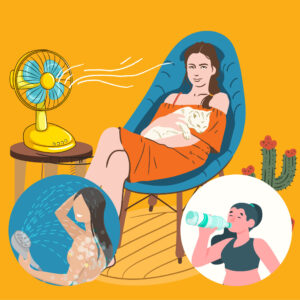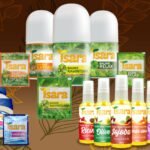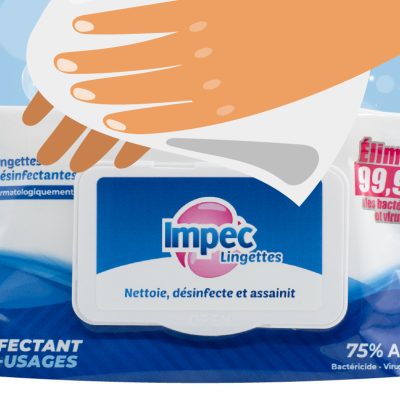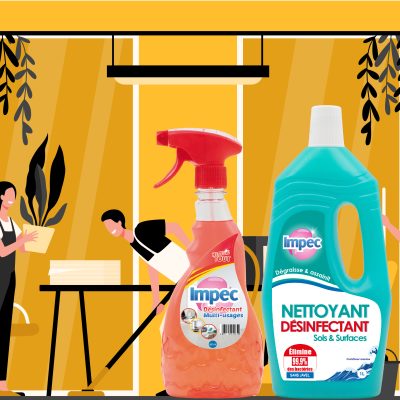Temperatures are particularly high at the moment: they can reach around 30°C during the day. We may think that, being used to such heat in the tropics, there’s no need to take precautions to protect our skin and body. And yet, we must be mindful that they can have serious consequences for our health.
If you work indoors during hot weather, you need to take precautions to ensure that your working conditions and health are not adversely affected.
How do you cope with the heat at work?

Follow the instructions!
Wear your mask properly during the heatwave
Working in sweltering heat, even in an office, can be particularly distressing, especially as you still have to wear a mask to protect yourself against coronavirus. However, wearing a mask in combination with heat can be uncomfortable. Happily, it’s always possible to stay masked, even when it’s very hot, indoors or out.
Opt for a lightweight mask
To ensure that wearing a mask remains bearable despite the heat, you should choose a lightweight mask that’s easier to breathe through. Fabric masks, on the other hand, are thick and heat up the face even more. They are therefore not recommended in these conditions.
Likewise, although black masks are very much on trend at the moment, they are also less comfortable in hot weather, as they absorb heat and warm the face. For this reason, it’s better to opt for a more comfortable light-coloured mask.
Instead, opt for a surgical mask, not an FFP2, which is more breathable.
Please note that to protect yourself effectively against the coronavirus, you need to combine the mask with a hydroalcoholic gel that meets the required hygiene standards.

Regularly freshen up your face
Remember to regularly freshen up your face with a spray bottle when you remove your mask. Moisturizing the skin helps rehydrate it and regulate body heat more easily.
Be sure to wait until your face is dry before putting it back on, as a wet mask will lose its effectiveness.
Breathe through the nose
To wear the mask comfortably, it’s better to breathe through the nose than through the mouth. Air from the nose is less warm and humid than air from the mouth.
Better working conditions in the heat
Working conditions can quickly become difficult when summer temperatures are at their hottest. Here are a few tips to help you work without being overly affected by the heat:
Wear light, breathable clothes
Light clothing is a must in summer so as not to be bothered by the high temperatures: a t-shirt, a short-sleeved linen or cotton shirt, fabric pants, a dress, etc.
Generally speaking, the materials recommended for summer are linen, cotton, silk, hemp and so on. Choose light-coloured clothing, which reflects heat rather than absorbing it.
Do not go out during the day
The advantage of working in an office is that you don’t have to go out during the day, exposing yourself even more to the heat. As far as possible, you should stay away from the sun in your office, especially during the hottest hours of the day, to avoid raising your body temperature. It’s more difficult to bring it down, even if you limit your efforts, when the sun is beating down hard, and this can lead to discomfort.
So, if possible, stay indoors during coffee breaks and lunchtimes.

Switch on air conditioning or fan
The simplest and most effective way to avoid the heat indoors is to bring in fresh air with a fan or air conditioner. This is all the more recommended as it’s best to close windows and patio doors to insulate the air inside. Contrary to what you might think, leaving windows open would let the ambient air, heated by the sun’s rays, into the office.
To avoid suffocating in the heat of the office, it’s best to close the windows, especially during the hottest hours, and turn on the fan or air conditioner.
Drink plenty of water
This is probably the most classic but also the most useful piece of advice: drink plenty of water. This will counterbalance the dehydration caused by sweating and keep you comfortable, even when the heat is particularly intense.
Caution! Avoid soft drinks, tea, coffee, alcoholic beverages, etc., as they won’t hydrate you as well as fresh water.






